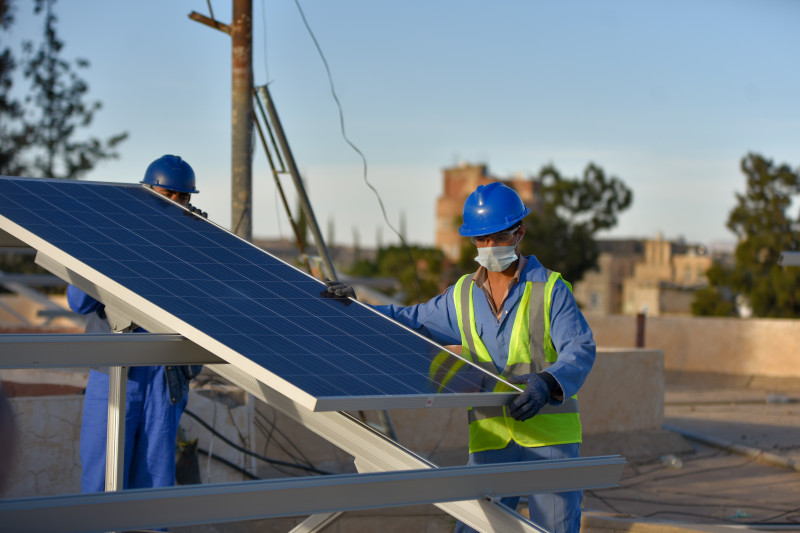Grant 1
Renewable energy solutions for climate security in protracted crisis in Yemen
The pilot aims to enhance the climate security of vulnerable and marginalized communities in Yemen by demonstrating innovative off-grid waste-to-energy (WtE) models that create jobs and enhance livelihoods while providing sustainable energy supply from treatment of local waste.
This pilot demonstrates that the WtE approach, whereby SMEs buy the solid waste from cooperatives, is feasible, has leveraged private sector funding to invest alongside this project and promote economic growth and job creation to build back better and underpin a more resilient post-crisis community.
The project developed a feasibility study looking at the entire waste value chain, electricity cost and pricing, financial analysis, SME benefits, gasification cost-benefit analysis, cost-benefit analysis of selling of electricity and fertilizer by SMEs, and a SWOT analysis.
UNDP has installed a WtE gasification plant in Lahj in southern Yemen, which is now entirely run by the private sector as a private corporation, becoming financially self-sufficient and sustainable, providing jobs and income to local waste pickers who use solar-powered tuk-tuks to collect trash and sell it to the WtE plant. The WtE plant in turn provides clean and reliable electricity for shops on a commercial market, enhancing local sustainable development potential in a conflict-affected and highly fragile context. The plant in Lahj transforms up to 5 tonnes of municipal and agricultural solid waste a day and generates 100 kilowatt hours of electricity and 1 tonne of plastic granules. This is enough to power 100 commercial shops and generate approximately 7,500 jobs for vulnerable people in rural areas. The business model will help ensure access to electricity at an affordable price: $2 for 12 hours versus $20 for 12 hours by fossil fuel.1 A second plant has been installed in Hoddeidah which will be operationalized by the end of 2023.

 Locations
Locations